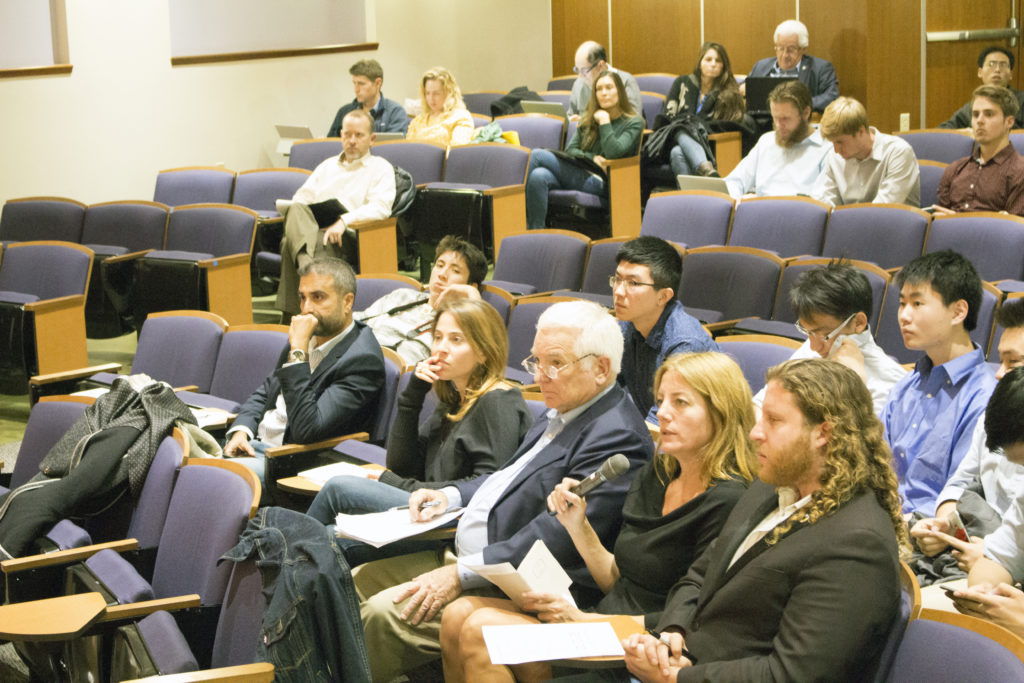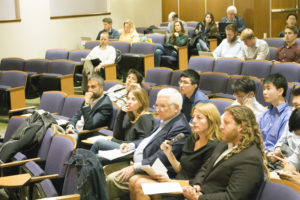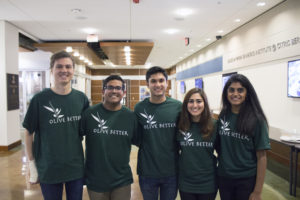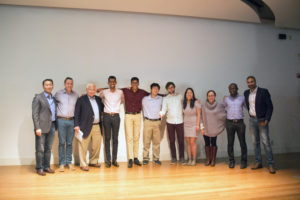
On December 5th, students at the University of California, Berkeley made their final startup presentations as part of Challenge Lab (IEOR 185) courses taught by the UC Berkeley Sutardja Center for Entrepreneurship & Technology. The student teams were challenged by industry leaders to tackle the problems of affordable clean energy in developing nations, the refugee crisis in Lesvos, Greece, and the challenge of using big data to build successful companies.

The student teams pitched their ideas to industry clients, journalists, and investors from companies such as Google, the U.S. State Department, and TechCrunch to compete for various prizes. Ultimately, winning teams will work with partners in Silicon Valley, Washington D.C., and Greece in order to bring their startup ideas to life.
As part of the Lesvos Challenge Lab, students were asked to create new ventures that would help bolster the economy and address the refugee crisis in Lesvos, Greece. The winning teams will travel to Google Headquarters to pitch their solutions in order to fundraise for their trip to Lesvos to implement their idea.
This semester the winning solution was Olive Better, a new olive leaf tea. The team claims that the benefits from olive leaf tea are on par with consuming olive oil itself — a fact which they hope will drive demand for their new product. The tea will also be sustainable as it would use a resource that currently is thrown away — olive tree leaves. Lesvos is known for its high quality olive trees and the team hopes this new product will help bolster their economy. A portion of the profits from the tea will also be directed toward helping refugees on the island.
“During our research we found that the olive oil industry plays a critical role in the economy as there are 11 million olive trees on the island!” said Vruti Desai from team Olive Better. “After speaking with olive farmers we learned that the olive leaves are not used for anything. They are actually burned or used as fertilizer. Our solution is to buy these unused, organic olive leaves from the farmers on Lesvos, and sell a line of tea in the US, which has a booming tea and health industry. Our goal is to not only help the local farmers, but aid in the refugee crisis as well. We plan to partner with current NGO’s and give 10% of our profits to aid the refugees. We also plan to spread more awareness about the crisis through our packaging and website. Overall we hope to spread the story of Lesvos, stimulate the economy, and provide an organic, healthy tea.”

Team Olive Better

Big Data Challenge winners will receive financial support upwards of $15,000 in order to pursue their ideas. The winning team (Aashay Patel, Aman Mohapatra, Akshay Rathish, Adithya Iyengar, Daksh Bhatia, Henry Dong, Karson White, Sanjay Raavi, and Mihir Chitalia) proposed Gather, a social platform that connects people over home-cooked meals. Gather will target millennials who wish to continue to make new friends after leaving robust social networks that often come easily at colleges and universities.
Students from previous years have leveraged the competition to launch successful businesses such as Eko Devices, Twindom, and Lily.
